Planet of the Apes (1968)
“Man has no understanding. He can be taught a few simple tricks — nothing more.”
|
Synopsis: |
|
Genres, Themes, Actors, and Directors:
Response to Peary’s Review: With that said, he concedes that director Franklin J. Schaffner “does exhibit visual flare when filming action scenes and landscape shots”: … and that “bare-chested Heston’s a solid, muscular hero” — a “good choice to play a symbol of human superiority who is humbled when he is to be experimented on by the apes, just as humans experiment on apes back home.” I’m largely in agreement with Peary’s assessment, finding this film, frankly, overrated. While I disagree that the film’s ending — “like something stolen from Serling’s The Twilight Zone” — is “predictable” (it’s not), I have a hard time wrapping my head around the inanity of the ape costumes, the wooden acting, and the improbable script (see the humorous video “Everything Wrong With Planet of the Apes” for an overview of its many “sins”). This was clearly meant to be a satire on numerous levels, and at the time of its release I’m sure it was considered audacious and groundbreaking — but it simply hasn’t aged well. Notable Performances, Qualities, and Moments: Must See? Categories
(Listed in 1001 Movies You Must See Before You Die) Links: |
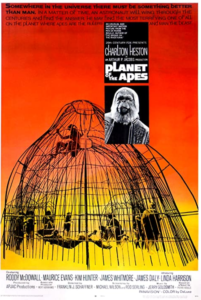
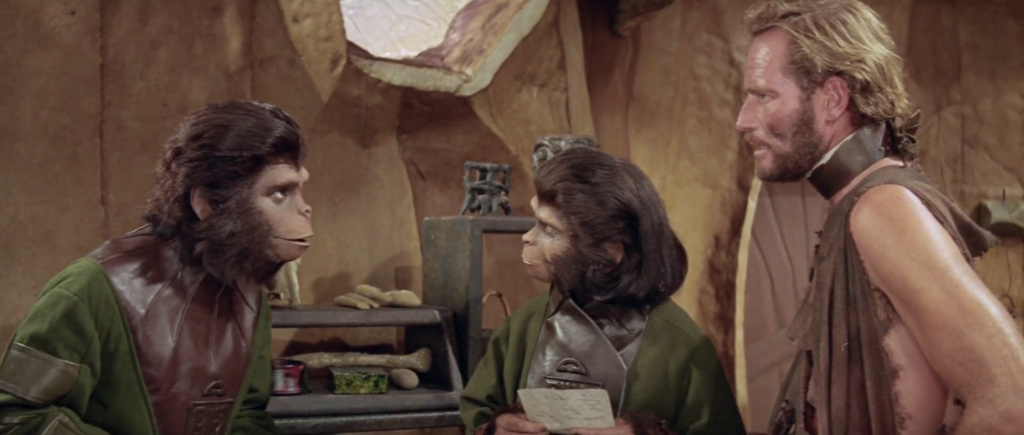
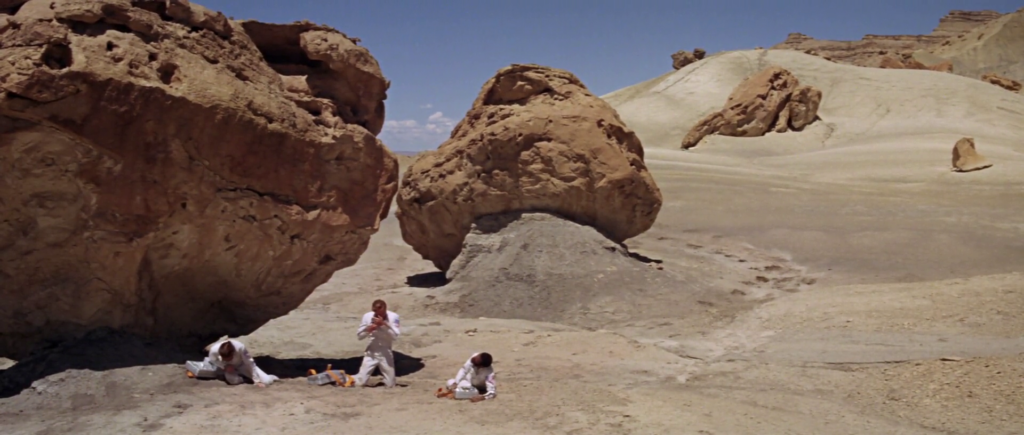
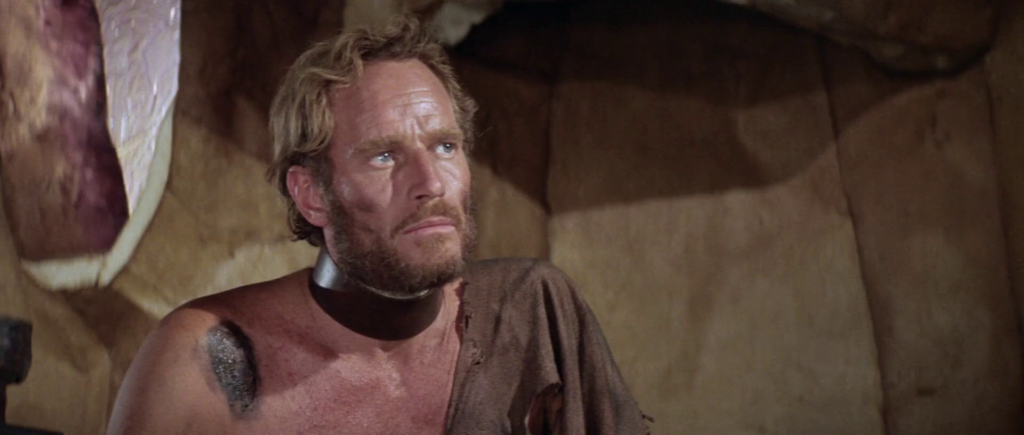
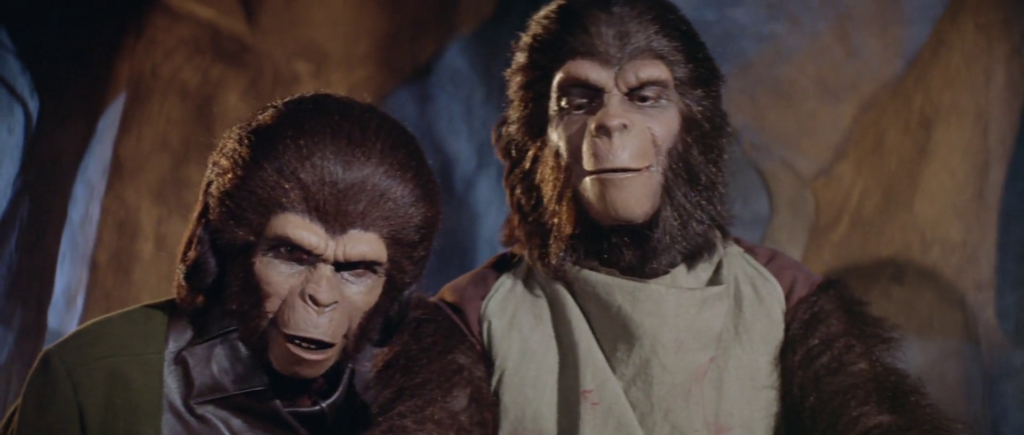
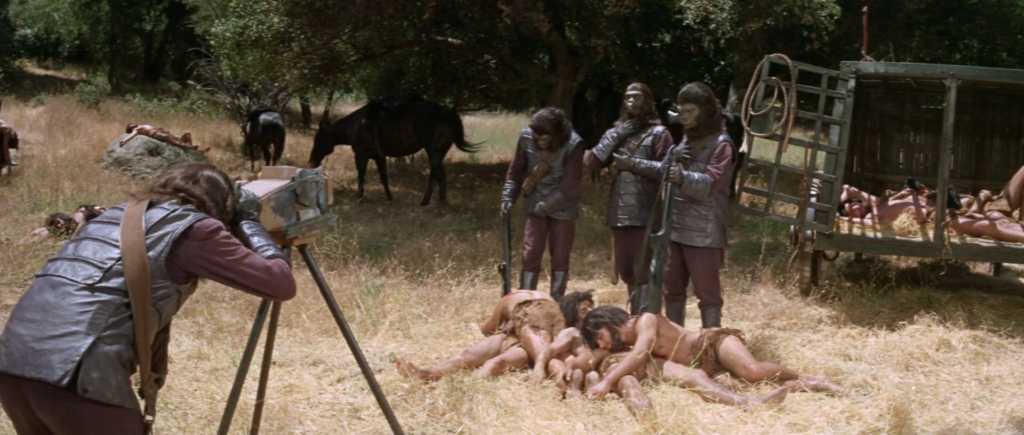
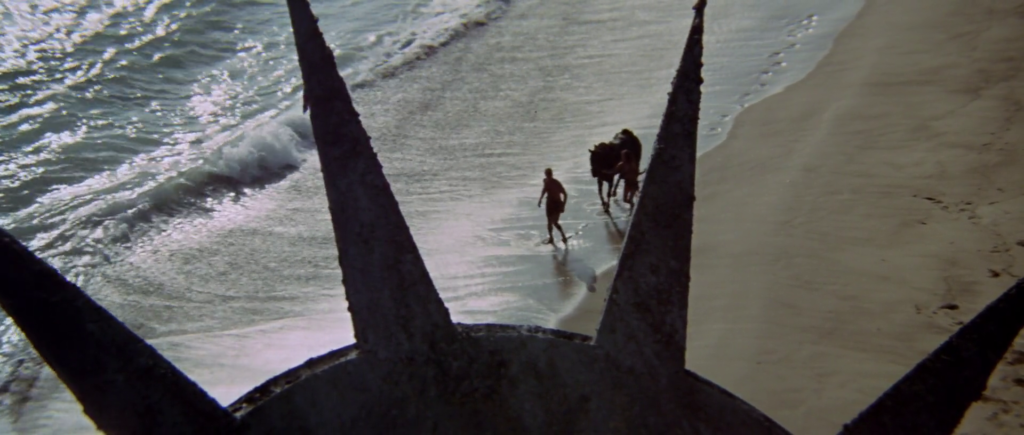
2 thoughts on “Planet of the Apes (1968)”
⭐️⭐️⭐️⭐️ out of ⭐️⭐️⭐️⭐️
Absolutely essential sci-fi classic and the only film in it’s entire franchise that is essential to FFs. A great film and one that gets better and better the more I see it. Highly recommended.
Rewatch. Though there is an argument to be made for the film’s “historical relevance”, I find on revisiting the film that I agree with this additional comment from the assessment: “…at the time of its release I’m sure it was considered audacious and groundbreaking — but it simply hasn’t aged well.” True; it hasn’t.
While I’m not sure I’d agree that the film “was clearly meant to be a satire on numerous levels” (it seems way too serious-minded for that), the strong satiric takedown of ‘Everything Wrong with Planet of the Apes’ is instructive (~ overall; it’s genuinely sharp in pointing out sloppiness).
Certain films – warts and all – can be held in such high regard that not referring to them as ‘must-see’ can be seen as ‘blasphemous’. But I don’t necessarily believe that films like that should be seen as ‘untouchable’. To me, this flick is optional.